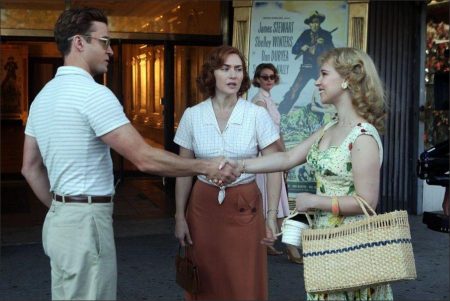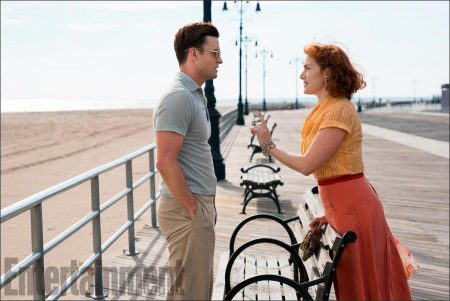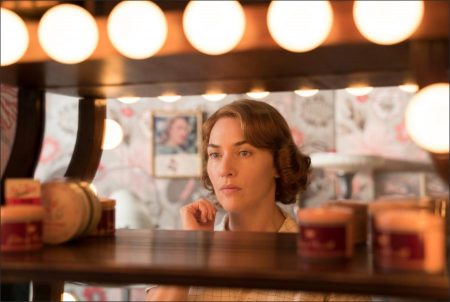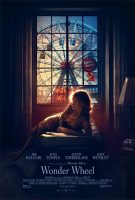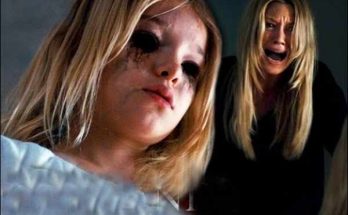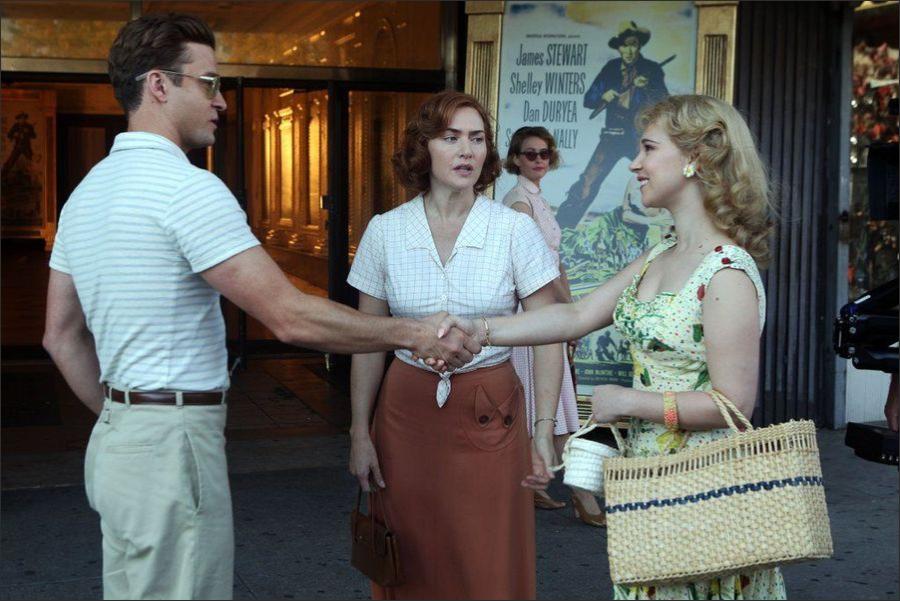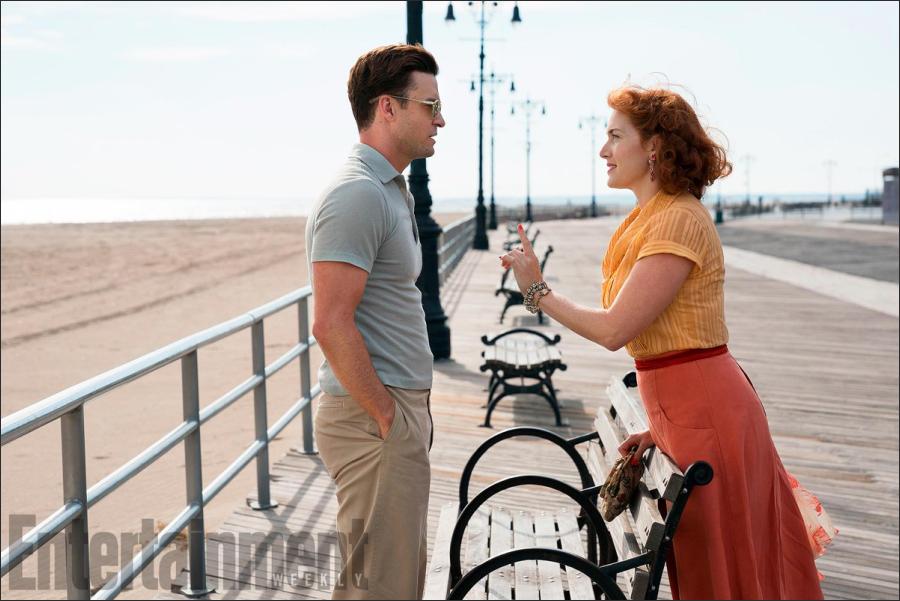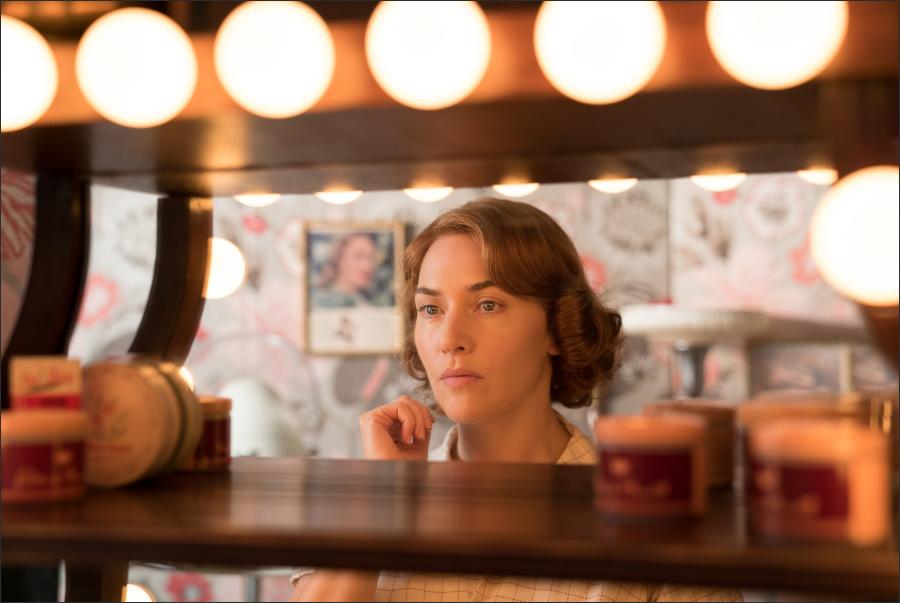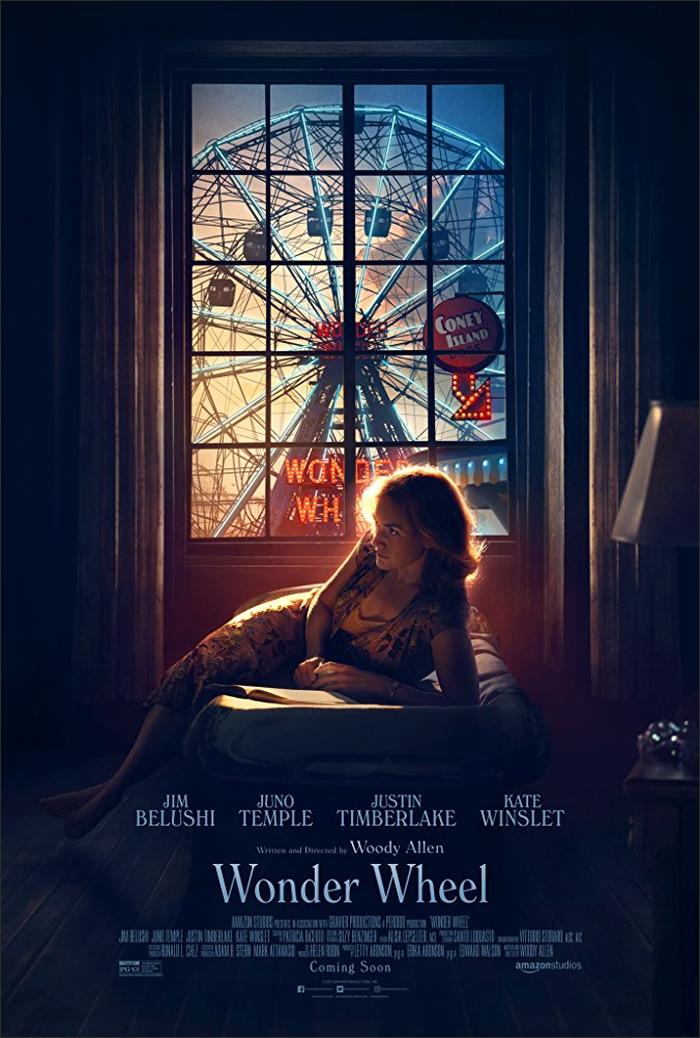Film Review for Wonder Wheel
Wonder Wheel, Woody Allen’s latest movie, is one of his more unfortunate contributions to cinema. It tells the story of a desperately, unhappily married woman whose affair with a local Romeo is derailed when he takes notice of her stepdaughter, whose breasts have been lit to glow like Vermeer peaches. The heart wants what it wants, as Mr. Allen once said by way of explaining his affair with his now wife, Soon-Yi, the daughter of his longtime ex, Mia Farrow. I tend to think it’s a bad idea to put a movie on the couch, but what if it climbs on the couch and then starts winking?
“Wonder Wheel” returns Mr. Allen to Coney Island, the childhood home of his alter ego Alvy Singer, the narrator of “Annie Hall” who claims to have grown up under the amusement park’s roller coaster. (“I have some trouble between fantasy and reality,” Alvy says.) In “Wonder Wheel,” the sad wife, Ginny (Kate Winslet), lives in an apartment that looks directly onto the park’s looming Ferris wheel. The attraction obscures her view of the ocean, literalizing already narrow horizons, and casts deep, expressionistic blue and red light on the apartment’s dilapidated interior and its equally worn inhabitants.
Ginny isn’t all used up, despite the insistently unflattering way she is often presented. She winces and frowns a lot, and the camera conspires with the lighting and makeup to catch every twitch of distress, and the sweaty, oily sheen she never seems able to blot away. It’s no surprise that she’s worried. She works in a clam house on the boardwalk, scrambling for hoi polloi, while back at home she has to juggle her loud, loutish husband, Humpty (Jim Belushi), and her son, Richie (Jack Gore). Like the young Alvy in “Annie Hall,” Richie is a redhead. But while Alvy is depressed about the universe, Richie seems largely troubled by his home life, specifically his demonstrably miserable mother.
So, when Mickey (Justin Timberlake, too modern a presence), a lifeguard and self-described romantic, gives Ginny the once over, she gratefully falls into his arms. “Wonder Wheel” more or less becomes Ginny’s story, but she doesn’t get to own it. The movie is narrated by Mickey, who pops in and out and looks directly into the camera. He has literary ambitions, as he likes to remind us, as well as a pad in Greenwich Village. For a while, Mickey offers Ginny a respite from her everyday grind, at least until the arrival of Carolina (a fine Juno Temple), Humpty’s daughter from an earlier marriage. She’s on the run from her gangster husband. “I know where all the bodies are buried,” Carolina says.
Somewhat of a cultural magpie, Mr. Allen has often folded bits and pieces — and at times entire conceits — from other work into his movies. Mickey mentions Eugene O’Neill, a reference that suggests we’re meant to see something of that playwright in Ginny and Humpty at their most raw and boozily fraught. Mr. Allen’s often blunt, overwrought dialogue, however, also alternately brings to mind Budd Schulberg (“I coulda been a contender”) and imitation Clifford Odets. In some scenes, you almost expect Mr. Belushi, who’s playing his heart out, to start bellowing about someone named Lefty. Much like its gaudy title attraction, “Wonder Wheel” keeps on turning, even while going nowhere.
This is Mr. Allen’s second movie with the cinematographer Vittorio Storaro, who seems to have enjoyed taking the color wheel and camera out for a spin. He gives the story visual flow, even when the characters are in claustrophobic lockdown. And Mr. Storaro keeps your pupils dancing with the light and dark hues. Some of the establishing shots of Coney Island recall the softer side of Technicolor, whereas the violently saturated scenes suggest the vibrancy of the Blue Rider palette. The more extreme colors — including an unlovely orange light that floods Ginny — pushes the whole thing into expressionism even as the movie fluctuates between kitchen-sink realism and hothouse melodrama.
Mr. Allen certainly keeps you busy with all these colors, tones, influences, complications, stereotypes and histrionics, but to little end. As has always been the case with his movies, the actors seem to have delivered the performances they came to the set with, so the strong — in this case, the invaluable Ms. Winslet — are strong while the rest of the cast members do what they can with varying degrees of success. Ginny, who yearns for something better than clam houses and brutality — and who is mercilessly punished for her yearning — could easily have become a monstrous, one-note cliché. But Ms. Winslet fills this shabby character with feverish life. She conveys far more with a single, quietly stunned look than any of Mr. Allen’s speeches or Mr. Storaro’s color changes.
At one point, after Ginny has turned into Blanche DuBois, she announces, “When it comes to love we often turn out to be our own worst enemy.” And not for the first time you wonder what Mr. Allen, who has long blurred fact and fiction, thinks he’s doing here. He couldn’t have anticipated that his name would be in the news because of the allegations of sexual abuse upending the entertainment industry. Yet how could we not think of him? In 1993, he was accused of molesting his daughter, Dylan Farrow. He maintained his innocence and was never prosecuted, yet the allegations as well as discomfort about his marriage to Soon-Yi have hovered over him like a malignant cloud. Critics have often uneasily ignored his history, but he himself seems perversely intent on invoking it.
Wonder Wheel (2017)
Directed by: Woody Allen
Starring: Jim Belushi, Juno Temple, Justin Timberlake, Kate Winslet, Max Casella, David Krumholtz, Tommy Nohilly, Tony Sirico, Steve Schirripa, Tom Guiry, Gregory Dann, Geneva Carr
Screenplay by: Woody Allen
Production Design by: Santo Loquasto
Cinematography by: Vittorio Storaro
Film Editing by: Alisa Lepselter
Costume Design by: Suzy Benzinger
Set Decoration by: Regina Graves
Art Direction by: Miguel López-Castillo
MPAA Rating: PG-13 for thematic content including some sexuality, language and smoking.
Distributed by: Amazon Studios
Release Date: December 1, 2017
Views: 148
